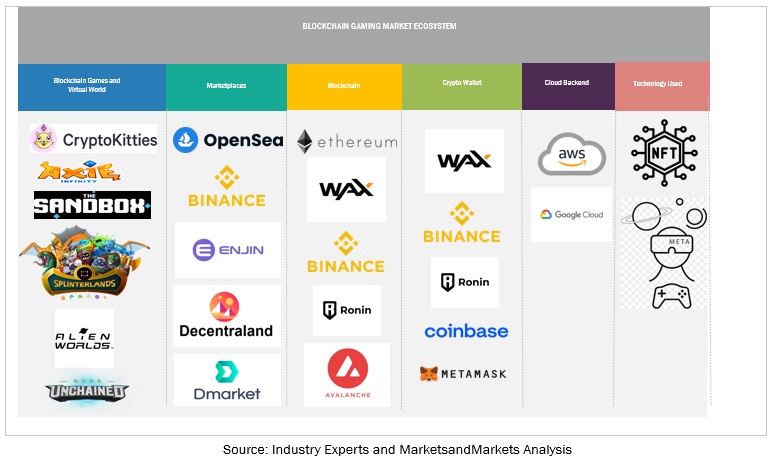BD Help Zone
Your go-to source for insightful news and information.
Game On: How Blockchain is Leveling Up the Gaming World
Discover how blockchain technology is revolutionizing gaming, empowering players and unlocking new adventures. Game on with us!
How Blockchain is Revolutionizing In-Game Economies
As the gaming industry continues to evolve, blockchain technology has emerged as a game-changer for in-game economies. By utilizing decentralized ledgers, blockchain provides a transparent and secure way for players to own, trade, and monetize in-game assets. This eliminates the risk of fraud and gives players real ownership over their virtual goods. The concept of play-to-earn is gaining traction as players can now earn cryptocurrency through gameplay, allowing them to convert their skills and time investment into real-world value.
Moreover, integrating blockchain into in-game economies fosters a vibrant ecosystem where developers can create unique monetization strategies. For instance, utilizing Non-Fungible Tokens (NFTs), game creators can tokenize in-game items, making them scarce and valuable. This not only enhances player engagement but also opens new revenue streams for developers. As blockchain continues to reshape the landscape of gaming, it is clear that the future of in-game economies will be defined by this transformative technology.

Counter-Strike is a highly popular first-person shooter series that emphasizes teamwork and strategy. Players can choose to be part of either the terrorist or counter-terrorist team, engaging in various game modes and map objectives. For those looking to enhance their gaming experience with some bonuses, check out the rollbit promo code for potential rewards.
The Future of Gaming: What Role Will NFTs Play?
The future of gaming is rapidly evolving, and one of the most intriguing developments is the integration of NFTs (Non-Fungible Tokens). These unique digital assets enable players to own in-game items, characters, and artwork in a way that was previously unimaginable. Unlike traditional gaming models where items are often trapped within a game's ecosystem, NFTs allow players to trade, sell, and buy their assets freely on various marketplaces. This new ownership paradigm is set to revolutionize the gaming landscape, offering players real-world value for their digital endeavors.
Moreover, the adoption of NFTs in gaming opens the door to innovative gameplay mechanics. Developers can create dynamic in-game economies where players can earn rewards through their contributions and efforts. Additionally, NFTs can facilitate limited edition content, creating exclusivity and driving demand. As blockchain technology continues to mature, we can expect to see more game developers exploring these possibilities, which could lead to a more engaging, player-driven experience. The fusion of gaming and NFTs is just beginning, and its potential is boundless.
Can Blockchain Technology Enhance Fair Play in Gaming?
Blockchain technology has the potential to enhance fair play in gaming by providing transparency and trust between players and developers. Traditional gaming systems often suffer from a lack of accountability, leading to issues such as cheating, fraud, and inequitable reward distribution. With the implementation of blockchain, every action within the game can be securely recorded on an immutable ledger, ensuring that player transactions and achievements are genuine. This not only builds player trust but also fosters a more competitive environment where everyone abides by the same rules.
Furthermore, blockchain can introduce decentralized game economies, allowing players to truly own their in-game assets. Unlike conventional models where developers retain control, blockchain enables players to trade, sell, or transfer their items freely. This empowerment can significantly enhance the gaming experience, as players are able to invest time and effort without the fear of losing their investment. Fair play is thus not just about rules; it’s about giving players the freedom and assurance that their contributions are recognized and valued in the gaming ecosystem.